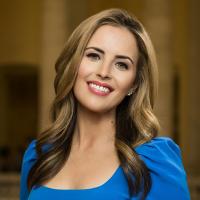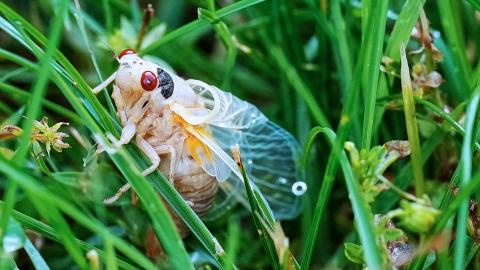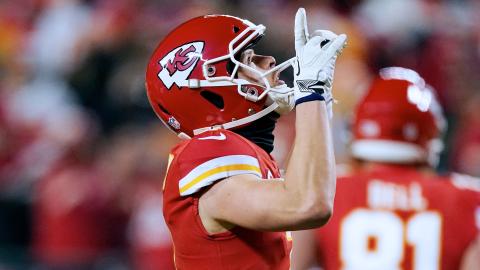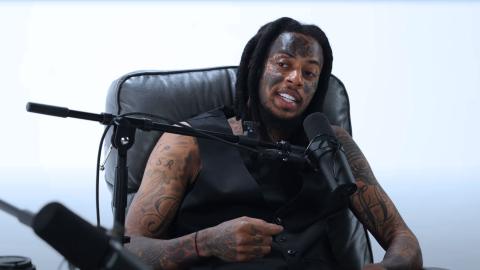Surviving a School Shooting: Supporting Needs of Survivors and Families
WASHINGTON – Mass shootings have become a way too common occurrence in the United States, especially in schools. In 2018 and 2019, they affected more than 100,000 children and research shows many survivors will feel the impact for years to come.
In a video produced by ABC News, a handful of school shooting survivors penned letters to future survivors, each describing what life has been like and the struggles they've faced.
"My little sister, Jaclyn, was nine years old when she was killed in the shooting at Robb Elementary in Uvalde, Texas," recalled one survivor who was also at the school that day.
"Over the past 10 years I've struggled with PTSD, anxiety, and depression," recalled another survivor.
 These struggles are common with research showing a higher antidepressant use among those exposed to school shootings. They also have led to a drop in enrollment and a decline in average test scores. On top of that, students who have been exposed are less likely to graduate high school or go on to college.
These struggles are common with research showing a higher antidepressant use among those exposed to school shootings. They also have led to a drop in enrollment and a decline in average test scores. On top of that, students who have been exposed are less likely to graduate high school or go on to college.
Researcher Melissa Brymer directs terrorism and disaster programs at the renowned UCLA-Duke National Center for Child Traumatic Stress.
"What we do is, how do we help those communities in the first days and weeks after a tragedy," she explained to CBN News, adding that they also help with longer-term recovery efforts.
Brymer was a key advisor in Newtown, Connecticut after the Sandy Hook Elementary school shooting.
"We created a program for the entire school district," she said. "So, we had mental health supports in Sandy Hook, plus the other elementary schools, the intermediate, the middle school, and high school. We needed to map which students might be more at risk. Were they a sibling of one of the students who died? Cousins? Or did they have a close relationship? Were they maybe in the vicinity of where the shooting took place or had to be in lockdown? Or do they know kids that experienced that?"
Brymer says support for survivors starts with thinking about their current needs.
"Do they have questions about what actually happened? You might think that if a child went through an event that they would understand what happened. But if you're in lockdown, you only have a snippet of what you experienced from that vantage point. So, they might have questions about, is my best friend okay? Were you guys okay as a family?
"So, addressing those safety questions, helping them to understand what might be happening in the next days to weeks. When school will resume, where it might resume, and what might be different when school starts. If there's more police presence if there's a change in the schedule. Kids need that kind of support," Brymer continued.
She says over time most kids will heal but some may need trauma or grief treatments. Part of her work is to ensure schools have the proper training and are able to implement these treatments.
And it's not just students. Brymer says families also need support.
Tony Montalto lost his 14-year-old daughter, Gina, in the Parkland, Florida school shooting.
"Our 17 families that had a loved one murdered that day at Marjory Stoneman Douglass High School banded together because we realized that things needed to change," he told CBN News. "The status quo was not acceptable."
That led to the creation of Stand With Parkland of which Montalto is president.
The organization focuses on securing school campuses, improving mental health screenings and support programs, and responsible gun ownership.
"Over the last five years we've passed seven school safety laws here in Florida," said Montalto. "We've helped pass four additional federal school safety laws, including the Fix NICS Act which worked on some background check issues, the Stop School Violence Act which created behavioral threat assessment teams in many schools and provided dollars for hardening the campus."
***Please sign up for CBN Newsletters and download the CBN News app to ensure you keep receiving the latest news from a distinctly Christian perspective.***
Like Montalto, Brymer wants to see change too. In addition, she would like to see bereavement services for kids experiencing grief, support for families navigating social media in the aftermath of these tragedies, and suicide prevention programs.
For school shooting survivors, there is hope, but getting there is a process that requires support and resources.
"You'll never be the same but you'll learn to live with this," explained one survivor in the video produced by ABC News. "Quite honestly, I'm not there yet. But with the support of the people you know and love you'll get there eventually."
Noted Links:




